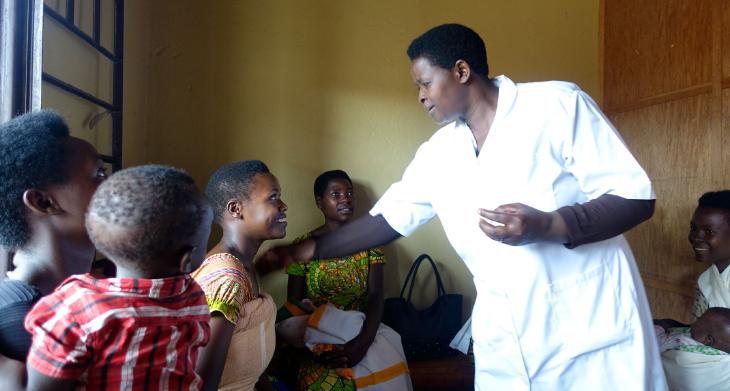TIP Global Health (formerly known as the Ihangane Project) is a nonprofit healthcare organization that began in 2008 as a grassroots effort to address health challenges in Rwanda. They have evolved into a highly effective model for delivering primary health care to vulnerable people everywhere – and a leader in the design and implementation of local health care delivery systems.
Why We Partner
We see SARS-CoV-2 as a terrible human tragedy but also an opportunity to learn and strengthen our resiliency against future public health crises that will be inevitable due to new disease vectors created directly by changing climate as well as resulting from mass-displacement.
Alongside front-line health care workers and the Rwanda Ministry of Health, TIP Global Health is creating Rwanda’s first point-of-care digital health record. This digital health record, called E-Heza, gives Nurses and Community Health Workers (CHWs) the tools they need to adopt evidence-based clinical care protocols, provide high quality care and utilize real-time data trends to both tailor health education to individual family needs and to improve the health care delivery system while simultaneously satisfying Rwanda Ministry of Health data reporting requirements. Because of E-Heza’s unique design, it can serve as an effective end-user interface that integrates with national databases such as OpenMRS and DHIS2 or serve as a stand alone health record. E-Heza has great potential to serve all of primary care provided at the community and health facility level.
E-Heza’s Acute Illness Assessment & Management module for CHWs Nurses at Health Centers fully supports WHO and Rwandan Ministry of Health policies and procedures for for all acute illness screening, diagnosis, treatment, and follow up care. This module allows CHWs in rural villages to enter screening questions. If COVID-19 is suspected, an alert immediately advises the CHW to isolate the community member and contact the health center. All collected information will populate a progress report that will be available to health facilities. Once the person arrives at the health center, nurses will be able to continue appropriate care in the same patient record. All collected information will populate the same progress report that is available for CHWs. In this way, each level of care is able to utilize collected information for individual patient care. Collected data is easily aggregated, and dashboards will allow for population management.
Impact
TIP Global Health’s work was able to use the power of data to make significant improvements in the quality of care in Rwanda, leading to the elimination of mother-to-child HIV transmission and over a 60% drop in malnutrition.
